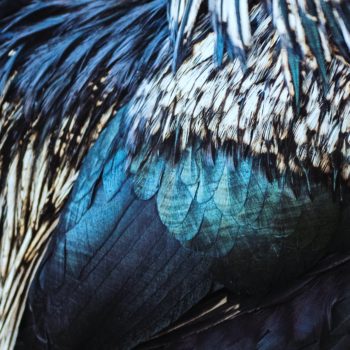
An Interview with Jen Neale
- Posted by Augur Blog
- On December 7, 2018
- 0 Comments
- author interview, canadian author, jen neale
We’re continuing our week of celebrating great authors with an interview with one of our own, Jen Neale. Her short story, “You Can Go Anywhere” featuring a crumbling, post-quake Vancouver, appeared in Issue 1.1 of Augur Magazine.
Jen’s short fiction has previously appeared in a variety of magazines across Canada and abroad, including Maisonneuve, and she won the 2012 Bronwen Wallace Award for Emerging Writers for her short story, “Elk-Headed Man.” Jen’s debut novel, Land Mammals and Sea Creatures, was the finalist for the Rogers Writers’ Trust Fiction Prize in 2018.
Augur spoke to Jen about writing Vancouver, natural disasters, and the human resistance to change.
Why did you choose Vancouver as your setting? Do you think an extended earthquake would have had a different effect on another major Canadian city?
I chose Vancouver mostly because I live here, and I was using this story to work through some of my thoughts about the housing situation, which feels like this low-level, continual stress. How much to people put up with before they leave? I do think the same analogy could be applied to a lot of cities right now. But Vancouver does have all of those fault lines.
Adaptation and evolution are a major part of this story. Is there something about those themes that can be extrapolated from the story and applied to human adaptation in general, especially as the planet changes dramatically and swiftly beneath our feet?
I wanted to explore my feelings about housing in Vancouver. I was feeling a lot of ownership over the place, and feeling bitter that it wasn’t “mine” anymore. I didn’t want it to change, and I didn’t want to adapt. I felt that way even though I wasn’t born there, and, honestly, I’m a white person living on Musqueam, Squamish and Tsleil-Waututh land. So, not mine.
Yeah, definitely themes of evolution and adaptation, and learning to deal with the place you love rapidly changing. But I also wanted to show the broader scope, that nothing on this planet is ours, and that we’re tiny blips, so there’s no point in getting grabby about your things.
There’s also a limit to that. For example, even though I’m a tiny blip, I don’t want to have to adapt to a dying planet, so, I adapt sometimes, and sometimes resist to save what I love.
How long do you think you would last during an event like this? Do you identify more with Moneek or with Audrey? Neither or both?
Oh, I’d probably crumple into a ball pretty quickly. But seeing as I’ve gripping onto this city even as it tries to eject me, and as it ejects my friends, even though there are so many other lovely places to live, it looks like I’m more of an Audrey.
How did you start out writing? What have your favourite projects been? Do you have any advice for people who are just starting to submit?
I wrote short stories as a kid, of course, but I really started to pursue it after I developed a friend crush on someone in the MFA program at UBC. She was in the program, so I made that my goal too.
Submitting to magazines is hard! I guess I’d say to make sure you’re really, really done your story before you send it off. There are no take-backs! Sometimes I prematurely submit (we’ve all been there) and then feel sad that I can’t resend the best version of that story.
What would you like to see more of when it comes to speculative, dreamy, or vaguely unreal writing in Canlit?
All of it. I love it all.
Why did you send your work to Augur? What made you think we were the right hope for your work?
When I heard that there was a new magazine in Toronto accepting speculative, slipstream and fabulist fiction, I knew I had to submit. (Seriously, it was about time.)




0 Comments